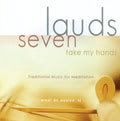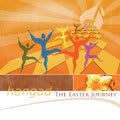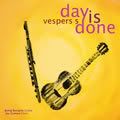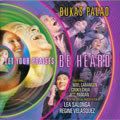 0
comments
|
Tuesday, May 08, 2007
0
comments
|
Tuesday, May 08, 2007
The Jesuit Music Ministry (JMM), an official ministry in the Philippine Province of the Society of Jesus, traces its roots to the pioneering work of Fr. Eduardo Hontiveros SJ, who began composing Filipino liturgical songs in response to the mandate of Vatican II in the ‘60s. Vatican II’s Sacrosanctum Concilium urged the entire assembly to actively participate in the liturgy which includes singing. From the first song Fr. Honti composed for a group of young boys and girls in Barangka,
The background of the Jesuit Music Ministry is Jesuit history itself. From the beginning of its missionary work, the Society of Jesus made its mark by contributing to Baroque music played in churches and sung even in Jesuit colleges. The first school of music in the Western Hemisphere was a Jesuit school in
But the biggest name is Domenico Zipoli SJ, an Italian Baroque composer who studied under Alessandro Scarlatti in
The succeeding years after the mandate of Vatican II, the St. Louis Jesuits in the
Jesuits promoted the use of the arts especially in schools because they believed that schools were places of the imagination and of the senses. And thus, the arts particularly music, became part of Jesuit education. Ignatian spirituality holds that God can be found in all things, and that human creativity is of God and can be used for God’s glory.
A case in point: An email was recently sent to JMM from Nico Lariosa of
So the Jesuit Music Ministry continues the work of its predecessors. Today, JMM produces around 50 albums of vocal and instrumental religious music for use in prayer and worship even for easy listening and relaxation. People tell us that they use these songs to calm them when they are on the road. They find listening to our BukasPalad, Hangad, Himig Heswita and Noel Cabangon albums inspiring. And they use our instrumental albums such as Lauds, Vespers, and Matins series as effective aids to meditation and prayer. Our music and MTVs won awards at the Awit Awards and the Catholic Mass Media Awards (CMMA) and are regularly shown in local television channels.
Aside from producing music, JMM began expanding its services: training parish and school choirs, giving liturgical music seminars and staging concerts locally and abroad. BukasPalad organized a Choir Convention at the Ateneo de Manila High School with key speakers, Frs. Manoling Francisco SJ and Carlo Magno. Hangad held a vocal training workshop. Recently, JMM artists performed at Cubao’s Diocesan Youth Assembly at Christ the King Seminary,
Just as the past Jesuits immediately responded to the needs of their age, the Jesuit Music Ministry now, while continuing its endeavors, hopes to respond more to the younger generation which comprises 51% of the population of the
Labels: albums, choir, filipino, fr. jboy, Jescom, jesuit, jmm, liturgical music, meditation, ministry, music, religious











0 Comments:
Post a Comment
<< Home